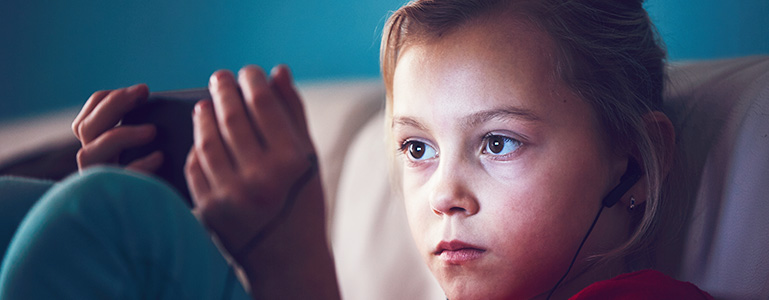By Havi Wolfson Hall, LCSW, Child and Adolescent Therapist and Parent Educator at Parents Place, Palo Alto
“Help! My Kid is addicted to their phone!”
Multiple scientific research studies are being published about the harmful correlations of screen time and children’s mental health, and more and more parents are seeking professional guidance around how to break their children’s screen time addiction.
As with any addiction, the cycle of addiction is a difficult one to break, and the number one thing that ensures success is that the addict has to admit there is a problem and be motivated and willing to change.
When parents set restrictions without communicating the WHY behind these limits, the substance becomes forbidden fruit. This increases the child’s desire to obtain it which often then leads to lying, bargaining, manipulation, and conflict. When we police our children in this way, we are sending the message that they are incapable of managing screen time on their own without our intervention. And in the long run, we are taking away the very important learning that comes with the trials and tribulations of learning for oneself.
Here are some conversation starters that can help your family break unhealthy screentime habits:
- Embrace the issue. We now know that technology is here to stay and we all need to learn how to balance it. Remind your children that the technology is the problem, not them! For example, “I see that it has been really hard for you to focus on homework when it is online. What can you do to not feel so distracted?”
- Educate: Not all screen time is created equally. It would be great to have the nutritional content available for all of the different types of screen time we consume, but since we do not have that (yet!), we can turn to resources such as Common Sense Media to give us an idea of what we are consuming and help us make healthier choices. “Hey Mom, can I download this game?” “Let’s take a look at it together before deciding. What kind of game is it? What skills are you hoping to gain from playing it?”
- Evaluate your space and time of use. When getting a new device or looking at your current ones, the questions can be, “Where should this device live?” “Are there places in the home that can be made into tech free zones?” “When should it sleep?” “Can certain times of the day be established as sacred time to connect as a family, such as meal times, morning and bedtime routine?” If screen time is interfering with family members’ basic functioning such as sleep, bathing, and eating, a community charging hub in a public space in the home is a great way to centralize devices and help everyone have healthier habits around where and when technology is being consumed.
- Enforce only when necessary! And do so in a way that puts you in the role as supporter, not prison guard. Ask your family members how you can help them in their journey to a healthier relationship with technology. “I see you are having a hard time remembering to put your phone back in the charging station at night. What can you do that will help you remember?” If it comes from them, there will be less power struggles and there will be a better chance of buy in for the long term.
Our children are not with us 24/7 and we only have so many years where we can be the positive role models in their lives before they launch into adulthood. All parents want their children to lead happy, balanced and healthy lives, but we cannot do it for them. Technology is no exception.
If you or a loved one is struggling with your use of technology, please join me on Thursday October 23rd for a screening of Screenagers Next Chapter and at our online workshop on Thursday, October 31st. This is a webinar that you can stream it from your own devices.
Movie Screening: Screenagers: The Next Chapter, Thurs., Oct. 23
How Smartphones and Social Media Really Affect Children, Thurs. Oct. 31
Seeking resources to help your child thrive? Attend a workshop, schedule a parent education meeting, or schedule an assessment with one of the Child and Adolescent Specialists at Parents Place.
As part of Parents Place’s Children’s Clinical Services team, Havi Wolfson Hall helps children and their families in areas such as anxiety, depression, and self-regulation, and the ever-evolving issues regarding our relationship with technology and how to better balance our lives online and offline. She earned her MSW from the University of Southern California, School of Social Work and her Master’s degree in Jewish Communal Service from Hebrew Union College.

